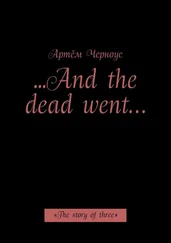The True Story of a Girl,
a Few Hundred Dates, and Fate
For Robert Schenkkan,
Whom I adore beyond all reckoning.
How did I ever get so lucky?
Cover Page
Title Page the Year of Yes The True Story of a Girl, a Few Hundred Dates, and Fate
Dedication For Robert Schenkkan, Whom I adore beyond all reckoning. How did I ever get so lucky?
A Day in the Life of a Naysayer
Mister Handyman, Bring Me a Dream
Jack the Stripper
Le Petit Cornichon
Te Amo, Chupa Chupa
Innocence, A Broad
‘Scuse Me While I Kiss This Guy
Remembrance of Things Crass
Journey to a Ten-cent Universe
Long Day’s Journey into Trite
Once Smitten, Twice Shy
Meeting Mr. Write
Author's Note
Acknowledgments
Copyright
About the Publisher
A Day in the Life of a Naysayer
In Which Our Heroine Decides to Start Saying Yes…
That woman speaks eighteen languages,
and can’t say “no” in any of them.
—Dorothy Parker
IMAGINE FOR A MOMENT THAT YOU are young, female, and appallingly, possibly unattractively, well read. You grew up in a small town in Idaho, but now you live in New York City, the most exciting and romantic place in the country, and feasibly in the world. According to the literature you’re choosing to apply to your current situation (you’ve carefully forgotten that you ever read Last Exit to Brooklyn ), you are supposed to be wearing sequins to breakfast and getting your hand kissed by a heterosexual version of Cole Porter. Incandescently intelligent men are supposed to be toasting you with Dom Perignon. Instead, you’re sharing a cockroach-ridden outer-borough apartment with two roommates and one dysfunctional cat. You’re spending your evenings sitting on your kitchen floor, drinking poisonous red jug wine, and quoting Sartre. Hell is not only other people, it is you, too. You’re not getting laid, because even if you were meeting something other than substandard men, you don’t have a bedroom to call your own. And instead of the smoldering, soul-baring, Abelard-to-Heloise-sans-castration solicitations you rightfully deserve, you’re getting stupefying lines like: “I’m listening to NPR. Do you want to come over and make out?”
That would be a direct quote.
Let me back up. Seven a.m. on February 14th, and I was lying on my lumpy mattress, alone again. The noises of NYC had ceased to metamorphose into the hopeful bird trills and tender love songs I’d imagined when I’d first arrived, a year before, and instead sounded like what they were: garbage trucks, honking horns, and the occasional cockroach scuttle. Granted, my last doomed relationship had been significantly more crow than canary, and more Nirvana than Sinatra. Still, it was Valentine’s Day, and I was considering a backslide. It didn’t matter that ceasing communication with my most recent disaster, Martyrman, an actor twice my age and half my maturity, had unquestionably been the right decision. It didn’t matter how many times I told myself that I was the brainwashed victim of propaganda created by sugar lobbyists in order to engender mass consumption of chocolate. Waking up on February 14th without someone to love was depressing.
I was becoming convinced that I was going to be lonely for the rest of my life. It wasn’t that I wasn’t meeting men. I was. It was just that they all drove me crazy. I was not a member of a modern-day Algonquin Round Table, populated with the pretty, witty, and wise, as I’d moved to New York envisioning I’d be. Instead, I was a denizen of something more along the lines of the Holiday Inn Card Table, populated with the zitty, twitty, and morally compromised. I wasn’t yet to the point of Dorothy Parker’s infamous quote—“Ducking for apples. Change one letter and it’s the story of my life.”—but that was only because I didn’t have time to approach my own bed, let alone anyone else’s. The main problem of living in the city that never slept was that neither did I.
When I got home from my usual exhausting day of racing uptown and downtown between classes at NYU and my various temp jobs, all I did was crumple up on my mattress, muttering to myself and reading books that made my problems worse. The night before, for example, when the front neighbor’s lullaby of sternum-thumping bass had made it clear to me that I wouldn’t be sleeping, I’d picked up Prometheus Bound. Reading Aeschylus had thrown me into a waking nightmare of being stretched on a rock, my liver plucked at by rapacious turtledoves.
Somewhere nearby, someone was practicing an aria from The Ring Cycle. Whoever was singing Brunhilde was flat. Worse than that, someone small, soprano, and canine was singing harmony, sharp. My downstairs neighbor, Pierre LaValle, had started his daily apartment sanitization process. For someone with linoleum floors, the man had an unhealthy relationship with his vacuum. Add to this the revival tent set up at the end of the adjacent block, the house party two buildings down, and the fact that the back neighbor’s illegal psycho rooster couldn’t tell headlights from sunlight, and the night was pretty much a wash.
The opera singer switched to “What’s Love Got to Do With It?” The canine backup started in on a rousing counterpoint of “Girls Just Wanna Have Fun.” I let fury course through my veins. My sleep deprivation was partially my own fault, admittedly, but since I hadn’t had a good time the night before, I was blaming it on everyone else.
I’d arrived home at 3:00 a.m., having spent the evening with a fellow New York University student. We’d eaten Korean barbecue, discussed Kierkegaard, and split the check in half, despite the fact that he’d eaten four times more than I. He’d then tried, and failed, to wheedle the traditionally clad waitress’s phone number from her “perfectly symmetrical lips.” At the subway, he’d given me a rubbery smooch on the cheek and told me he thought we’d really had a meeting of the minds.
I levered the window open and stuck my hungover head outside. Everything looked bleak. I felt disturbingly Steinbeckian, as though, at any moment, I might find myself begging my roommates to “tell me about the rabbits.” My life was a great big fat NO. It wasn’t like I didn’t want to be happy. It just seemed that happiness was eluding me.
My landlady, Gamma, was standing outside in our Astroturfed courtyard, feeding a pack of feral cats a platter of shriveled hot dogs. Gamma’s six-year-old granddaughters, the twins, were sharing a ketchup-covered hot dog with a notch-eared tabby. One bite to each child, one to the tomcat. Gamma was not known for her vigilance.
“Probably rain,” Gamma announced.
“Probably flood,” I said. Never mind the clear skies. I was embracing pessimism.
“World’s ending sometime next week,” Gamma informed me. Gamma liked to talk about only two things: the Apocalypse and the Weather Channel. One of the twins gave a war whoop, and pitched the rest of the hot dog at my window. It landed inches from my face and slid down the building. The twins shrieked with mirth.
“What do you think you’re laughing about?” demanded Gamma, and herded them indoors. It was clear from the rear view that one of the twins had wet her pants in the excitement. This was my home. These were my neighbors, the urban equivalents of the hicks I’d been desperate to leave behind in my home state of Idaho. Give Gamma and company a little more space, and they’d have had a few rusted-out cars, some scrabbly hounds, and a stockpile of The Book of Mormon. I’d thought things would be different here. No.
Читать дальше











